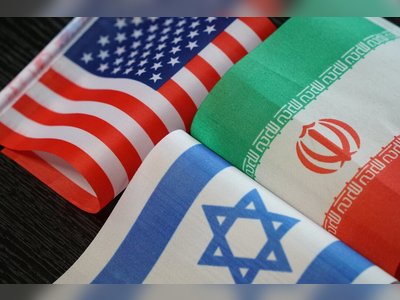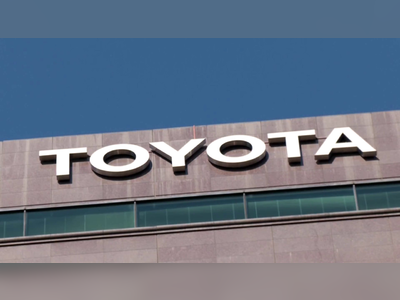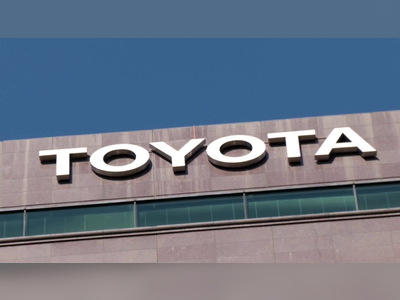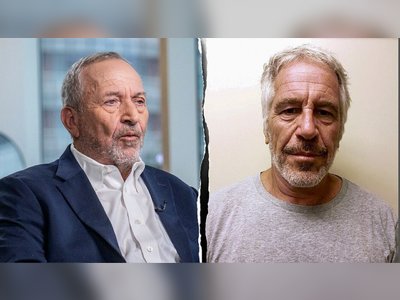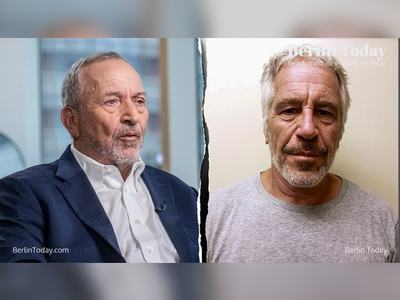
Donald Trump Pardons Over 1,000 Convicted in Capitol Riot
Former U.S. President Donald Trump issues pardons for individuals involved in the January 6 Capitol assault, including high-profile figures.
On January 22, 2025, former U.S. President Donald Trump pardoned more than 1,000 individuals convicted for their roles in the January 6, 2021, attack on the U.S. Capitol.
High-profile figures among those pardoned include Jake Angeli-Chansley, known as the 'QAnon Shaman,' who had gained notoriety for his prominent involvement in the event.
Angeli-Chansley had been sentenced in 2021 to 41 months in prison, three years of supervised release, and a $2,000 restitution fee for obstructing congressional proceedings.
Pardoned on Trump’s first day in office, Angeli-Chansley expressed gratitude and announced intentions to acquire firearms, a move enabled by the pardon lifting previous legal restrictions.
Stewart Rhodes and Henry 'Enrique' Tarrio, leaders of the 'Oath Keepers' and 'Proud Boys' – extremist groups linked to the Capitol riot – were also among those pardoned.
The pardons, part of a wide-reaching executive decision, were enacted mere hours after Trump's inauguration.
The January 6 Capitol breach occurred during a joint session of Congress to certify President Joe Biden’s 2020 election victory.
The incident, motivated by baseless allegations of electoral fraud propagated by Trump, disrupted the proceedings and resulted in five deaths.
The pardoned individuals had faced charges including unlawful entry, resistance against law enforcement, and more severe accusations involving violent acts against officers.
While some members of Trump’s team were reportedly surprised by the decision, the pardons drew strong reactions from lawmakers and former law enforcement officials.
Trump defended the actions, critiquing the judicial sentences as excessive.
The January 6 riot marked a significant moment in U.S. history, spotlighting the volatile political climate and tensions surrounding the 2020 presidential election.
The decisions taken by Trump upon re-assuming office are likely to prompt further debate and scrutiny in the context of the ongoing discourse on political accountability and legal consequences.
High-profile figures among those pardoned include Jake Angeli-Chansley, known as the 'QAnon Shaman,' who had gained notoriety for his prominent involvement in the event.
Angeli-Chansley had been sentenced in 2021 to 41 months in prison, three years of supervised release, and a $2,000 restitution fee for obstructing congressional proceedings.
Pardoned on Trump’s first day in office, Angeli-Chansley expressed gratitude and announced intentions to acquire firearms, a move enabled by the pardon lifting previous legal restrictions.
Stewart Rhodes and Henry 'Enrique' Tarrio, leaders of the 'Oath Keepers' and 'Proud Boys' – extremist groups linked to the Capitol riot – were also among those pardoned.
The pardons, part of a wide-reaching executive decision, were enacted mere hours after Trump's inauguration.
The January 6 Capitol breach occurred during a joint session of Congress to certify President Joe Biden’s 2020 election victory.
The incident, motivated by baseless allegations of electoral fraud propagated by Trump, disrupted the proceedings and resulted in five deaths.
The pardoned individuals had faced charges including unlawful entry, resistance against law enforcement, and more severe accusations involving violent acts against officers.
While some members of Trump’s team were reportedly surprised by the decision, the pardons drew strong reactions from lawmakers and former law enforcement officials.
Trump defended the actions, critiquing the judicial sentences as excessive.
The January 6 riot marked a significant moment in U.S. history, spotlighting the volatile political climate and tensions surrounding the 2020 presidential election.
The decisions taken by Trump upon re-assuming office are likely to prompt further debate and scrutiny in the context of the ongoing discourse on political accountability and legal consequences.
AI Disclaimer: An advanced artificial intelligence (AI) system generated the content of this page on its own. This innovative technology conducts extensive research from a variety of reliable sources, performs rigorous fact-checking and verification, cleans up and balances biased or manipulated content, and presents a minimal factual summary that is just enough yet essential for you to function as an informed and educated citizen. Please keep in mind, however, that this system is an evolving technology, and as a result, the article may contain accidental inaccuracies or errors. We urge you to help us improve our site by reporting any inaccuracies you find using the "Contact Us" link at the bottom of this page. Your helpful feedback helps us improve our system and deliver more precise content. When you find an article of interest here, please look for the full and extensive coverage of this topic in traditional news sources, as they are written by professional journalists that we try to support, not replace. We appreciate your understanding and assistance.
